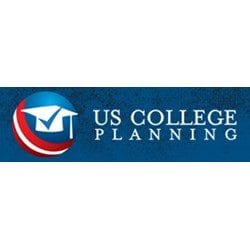Choosing which degree to major in has always been a difficult decision for many college students. However, in today’s economic climate the stakes are even higher—as competition for jobs increases, a student’s choice in major will almost certainly impact their employment prospects.
But what does that mean about your decision? Should you choose your college degree based solely on what gives you the best chance to get a job? Or should you pursue your passion?
A recent article posted by Marcia Y. Cantarella on the Huffington Post gives some interesting perspective:
Students are told to be practical and find a major that will serve them in practical terms carrying them to a life in engineering or accounting. Or they are told to find a passion and follow that. Neither is quite right. The reality is that few people remain in jobs that relate to their majors in any way. Certainly my first career in corporate marketing did not relate to my political science major. A major is a vehicle for skill delivery. It can be viewed then as the medicine that delivers skills or as the food that delivers nutrition. I like the analogy of food better. You can find foods that both nourish you and are yummy and fun — these days even chocolate has benefits. A major should be like that — both feed you skills and feel like something you want.
Because any major — pretty much across the board — except perhaps in some clinical areas like engineering, will give you skill and experience in thinking critically, engaging in research and problem solving, hopefully in writing and communicating what you choose is important only in that it allows you to manifest your excellence. Going for the practical when it does not suit your learning style or aptitude will only leave students frustrated and failing. We wonder why so many students leave college. They are taking classes that they don’t understand from a skills relevance standpoint or that they don’t like and so don’t do well in.
We honor the high GPA. But the student trapped in the practical can’t achieve that GPA stuck in a bio major that they hate. Certainly I would not have graduated with honors if I had been pre-med to fulfill someone else’s dream. I loved my major and devoured the texts and the debates in class. It was a path to success IN college. But after college the skills which I could have gotten from a psychology major or an economics major or an English major according to my classmates with those majors, have been what lead to professional success in a field that I can declare as a passion — the field of higher education.
To get there however I had to have many other jobs — some I actually also reveled in. But the skills I have applied regardless of context have been the same skills. So you have CEOs like Ken Chenault of American Express who was a History major and the Assistant Treasurer of the State of Tennessee who was an English major and the list goes on.
Finding a passion is a lifetime activity that we get to practice in college in finding a major where we can revel in something that engages us at our best. Then the world will offer opportunities to work in areas that may become new passions that were never even on the radar screen.
There’s no question that choosing your major is a big decision. And the truth is that there is no black and white solution. It’s a decision that must be made while considering a variety of factors, including career opportunities. If you’d like to talk to an expert as you wrestle with this important choice, please give us a call today!




